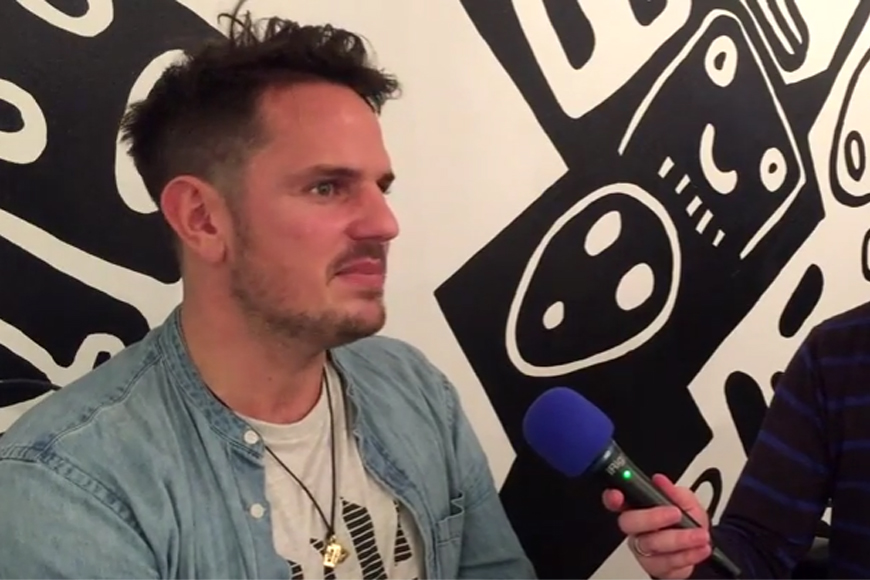It goes without saying that eSports is an incredibly fast-changing industry, and traditional sports clubs getting involved seems to be the flavour of the month.
In September, UK-based eSports organisation Team Dignitas was acquired by US basketball club The Philadelphia 76ers, and many other clubs have gone into eSports this year, including PSG, Schalke, West Ham, Manchester City, Monaco and many others.
What does Sam Mathews, founder of Fnatic, one of the biggest eSports organisations (and one that is technically based in the UK), think about this new trend and what it means for the future of eSports? What he consider selling up to a bigger traditional sports brand?
“At this stage I’m pretty happy with our trajectory,” he told eSports News UK at the launch of new Fnatic Gear products. “I like the fact that we know eSports inside and out, we’ve been here since day one.
“We’ve helped form it and formulate how it should be, and put our efforts into making sure it’s well structured and doing our bit to grow it.
“I don’t see us jumping out any time soon. If we were ever to consider something like that, I don’t even know what it would look like to be honest. Right now for us it’s just about this opportunity to take our message and our mission as a business to the whole world. We think this is a new world sport, this is like football-level scale.
“Obviously we’re in multiple games. It’s so exciting to not have and be bound by rules of traditional sport. Right now we can launch academies in different regions like Sweden or India or South America.
“It’s fun as an entrepreneur and as a group of creative people who want to create cool new stuff.”
So what are Fnatic’s predictions on how eSports will evolve in the next five to ten years or so?
“It’s very malleable, it’s going to be very different. We can’t necessarily predict exactly how it’s going to be,” Sam explained.
“I definitely think the authentic eSports brands will still be here, whether they’ve merged with sports teams or whether they’re still independent. That really comes down to the founding team and the management behind them.
“I think a good example of a company which has brought in some great expertise and done an interesting structure is Team Liquid and Peter Guber. They’ve obviously got a lot of sports experience and are well respected sports people. And then at the same time, a group of eSports entrepreneurs that know what they’re doing.
“I definitely think the authentic eSports brands will still be here, whether they’ve merged with sports teams or whether they’re still independent. That really comes down to the founding team and the management behind them.”
Sam Mathews, Fnatic
“The European mentality of teams taking control of their own eSports brands… I’m not sure about that. I think there needs to be a level of entrepreneurship by the upper top-down people that manage these teams. And ultimately when you bring in a gun for hire to manage your eSports team, it’s not always going to result in success, compared to the other team such as Fnatic, where we have a lot of partners and companies that have bought into what we’re doing as a business.
“For us, it’s been a long road to get where we are and there’s been a lot of challenges. It’s still a competitive landscape with money coming in that we have to compete against, but I think that in joining eSports now, you’re riding a wave. And it’s going to get better and it’s going to get bigger.”
eSports News UK was speaking to Sam Mathews at the launch of new Fnatic Gear accessories: the Clutch mouse, Duel headset and new mouse mat.
Sam said: “There’s no unnecessary flashy lights, no bullshit – it’s just what you need to perform.”
Explore Our Trusted Gaming Resources
Discover essential guides to UK casino sites, betting platforms, and crypto casinos — updated for this year.
- Best Online Casinos UK
- Best Bitcoin Casinos in 2025
- Top Online Betting Sites 2025
- No Verification Casino Sites in the UK
- Non Gamstop Casinos UK

Dom is an award-winning writer and finalist of the Esports Journalist of the Year 2023 award. He has almost two decades of experience in journalism, and left Esports News UK in June 2025.
As a long-time gamer having first picked up the NES controller in the late ’80s, he has written for a range of publications including GamesTM, Nintendo Official Magazine, industry publication MCV and others. He also previously worked as head of content for the British Esports Federation.


